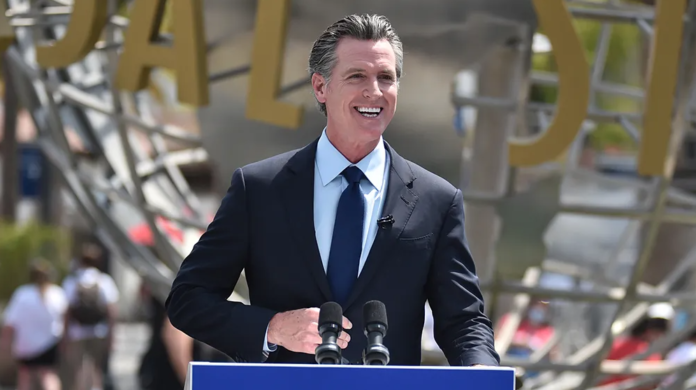Gavin Newsom, the governor of California, has rejected a groundbreaking artificial intelligence (AI) safety measure that had been strongly opposed by big technology businesses.
The proposed legislation would have imposed some of the first AI-related restrictions in the United States. Mr. Newsom said the bill might hinder innovation and drive AI developers out of the state.
Senator Scott Wiener, who introduced the bill, stated that the veto lets firms continue creating “extremely powerful technology” without government control. The measure would have required the most advanced AI models to be safety tested.
It would have required developers to ensure that their system featured a so-called “kill switch”. A kill switch would enable businesses to isolate and effectively turn off an AI system if it posed a threat.
It would also have required official monitoring for the development of so-called “Frontier Models” – the most powerful AI systems.
The bill “does not take into account whether an Al system is deployed in high-risk environments, involves critical decision-making, or the use of sensitive data,” Mr. Gavin Newsom stated.
“Instead, the bill applies stringent standards to even the most basic functions – so long as a large system deploys it,” he added.
At the same time, Mr. Newsom outlined plans to protect the public from the perils of artificial intelligence and requested prominent scientists to assist in developing safeguards for the technology.
In recent weeks, Mr. Newsom has also signed 17 measures, including legislation targeted at combating misinformation and so-called deep fakes, which comprise images, video, or audio content made with generative AI.
California is home to many of the world’s largest and most advanced AI startups, including OpenAI, the maker of ChatGPT.
Because the state serves as a hub for many of the world’s greatest technology companies, any legislation governing the sector would have a significant national and global impact on the industry.
Mr Wiener stated that the decision to veto the measure left AI businesses with “no binding restrictions from US policymakers, particularly given Congress’s continuing paralysis around regulating the tech industry in any meaningful way.”
Congress’s efforts to establish controls on AI have stagnated.
OpenAI, Google, and Meta were among several large tech companies that opposed the law, warning that it would impede the development of critical technology.





